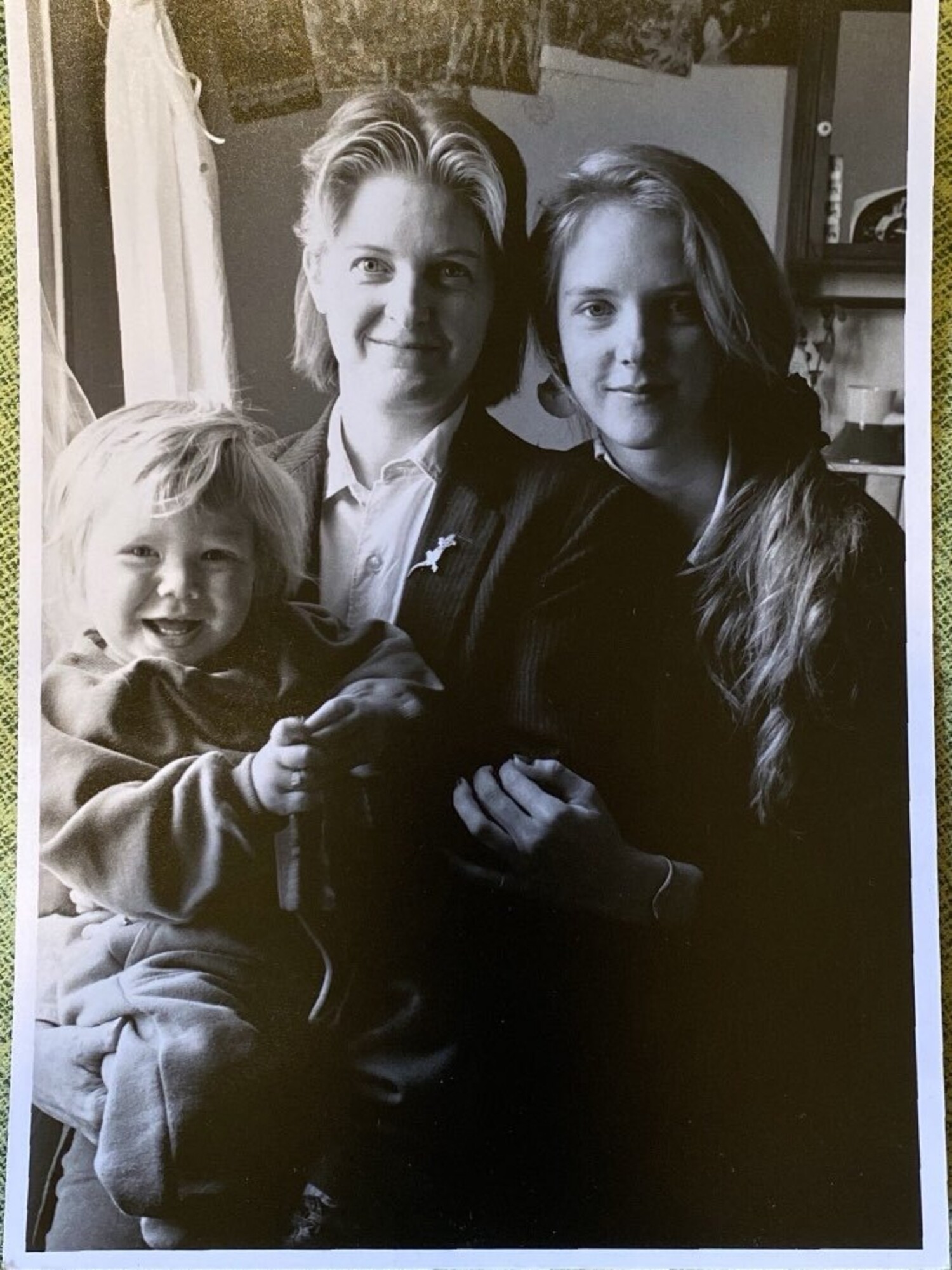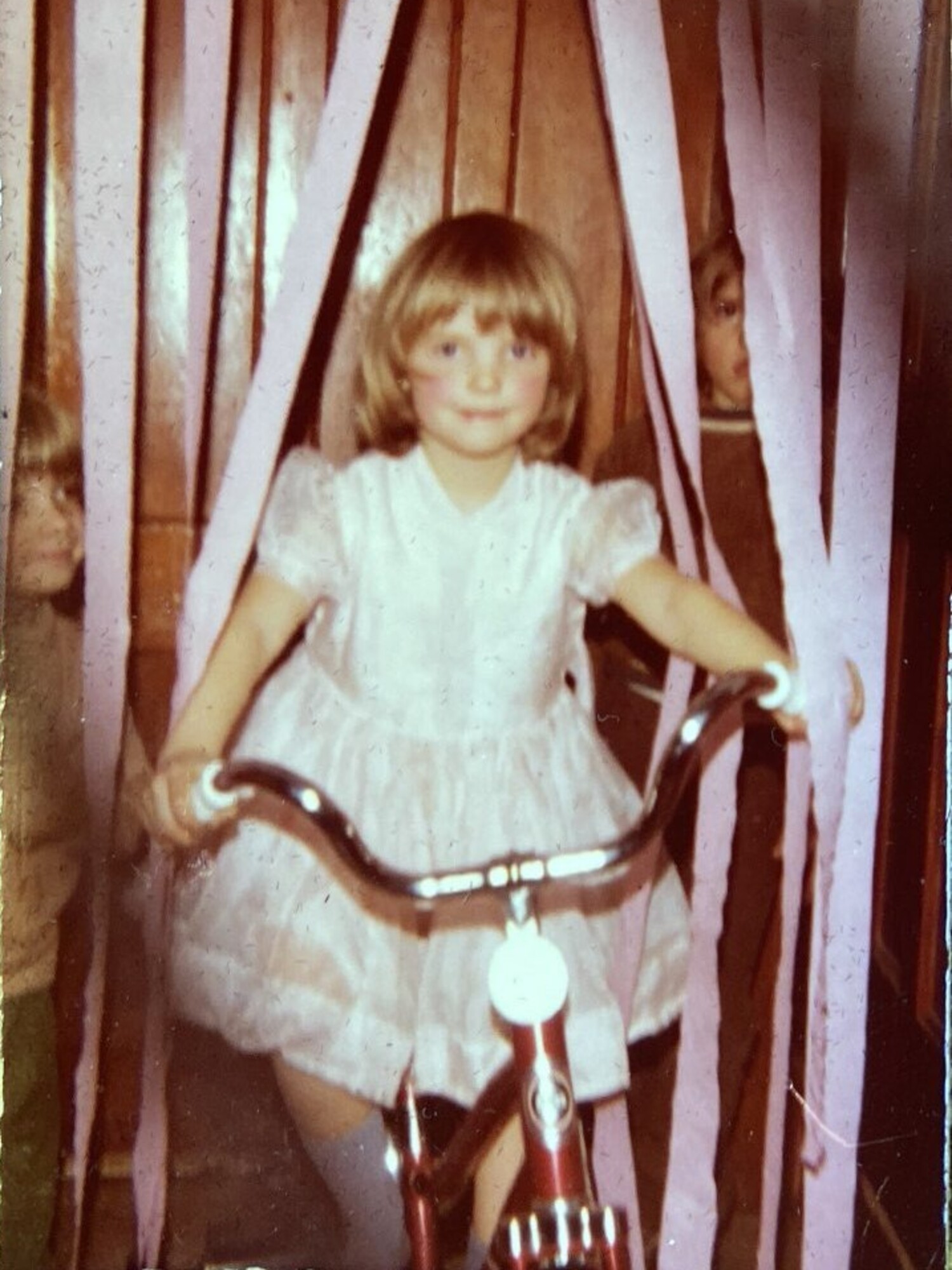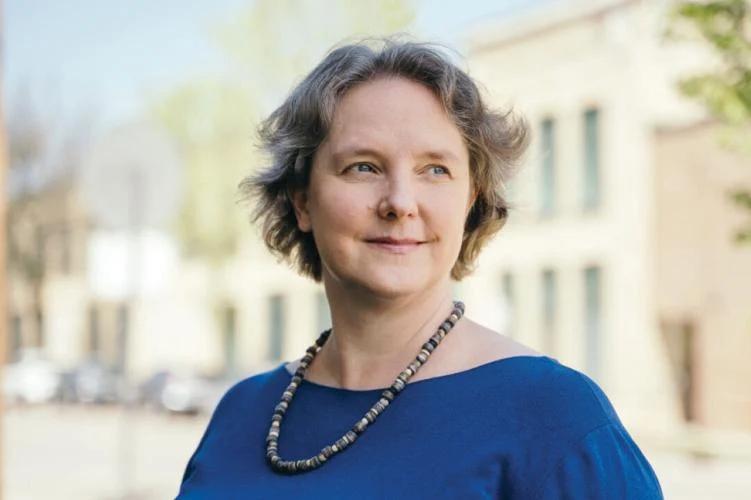
Satya Rhodes-Conway: "now is the time to come together"

Satya Rhodes-Conway never planned to work in politics, but her passion for ecology and determination to lead change brought her to Madison, Wisconsin.
Early life & career
Satya was born in New Mexico and grew up in Ithaca, New York, a town that she describes as “very progressive.”
When she was five years old, her parents, Anne Rhodes and Bob Conway, divorced and her mother came out as a lesbian. Satya acknowledges that having an openly gay mother made coming out herself in high school easier, but says that coming out to her father was more difficult.
Satya’s mother Anne, an artist, has always been very active in the community, serving as her earliest role model. An activist, Anne is passionate about the climate, anti-racism and anti-oppression.
Satya counts her mother among her mentors, saying, “She modeled being out, proud and strong, doing what you think is right, following your dream and how to make it work.”
According to Satya, living in a progressive community meant that she never felt like she had hide who she was.
“I never had to seek out a place to feel accepted,” she says.
From singing in a queer choir to playing rugby, she says feels fortunate that she has always had the opportunity to choose spaces that felt safe and comfortable.
Like many young people, Satya had multiple interests and was unsure which to pursue after high school. “I originally wanted to be a musician, but I also wanted to save the rainforest, so I decided I would be a research scientist,” she says.
She studied biology at Smith College in Massachusetts and ecology at the University of California, Irvine, where she discovered that she actually preferred teaching over research.
Finding herself “over degreed and underexperienced” after graduate school, Satya decided to apply for an internship in Madison, which prompted a cross-country move in 2002. The internship with the State Environmental Resource Center offered an opportunity to make a change through policy. It was also her introduction to public policy.
“Two things happened because of that internship,” says Satya. “First, I fell in love with Madison. Second, I was able to talk my way into a full-time job with the State Environmental Resource Center.”
That led to a position as managing director of the Mayors Innovation Project and a senior associate at the High Road Strategy Center at the University of Wisconsin- Madison for 13 years. She worked with cities across the country to implement innovative policy and researched and wrote extensively about local policy that promoted sustainability, equity and democracy.
Satya eventually became involved with several municipal committees, including chair of the Long Range Metro Transit Ad Hoc Planning Committee and a subcommittee member of the Commission on the Environment.
Satya was elected to the Madison Common Council in 2007, stepping down from the position upon the end of her third term in April 2013. In 2018, she announced she would run for mayorship of Madison, focusing her campaign on bringing bus rapid transit to Madison, increasing the supply of affordable housing, combatting climate change and promoting racial equity.
As a mayoral candidate, Satya’s sexuality was being discussed for the first time in her career. “It just never came up before,” she says. “Because I have always chosen spaces that felt safe and comfortable, there has never been a time where I felt like I had to be in the closet at work.”
Satya quickly realized how tricky it can be to strike a balance between celebrating who she was and focusing on the issues that mattered the most to her during her campaign.
While some in the gay community criticized her for not being “out enough,” she simultaneously experienced pushback from those who felt that being queer “wasn’t relevant” to her campaign. In the end, Satya was victorious—she was inaugurated as mayor of Madison in April 2019. She was reelected in 2023.
Since becoming mayor, Satya has launched a number of transformative projects in Madison, including doubling the City's affordable housing fund; transforming Madison’s transit system; building climate resilience and reducing greenhouse gas emissions; and more.
“I’m proud of the fact that I set out with a very clear set of things I wanted to accomplish—I told people what I was going to do and I’m doing them,” she says. “It’s not easy, and things never move as quickly as I’d like, but we’re making great progress.”
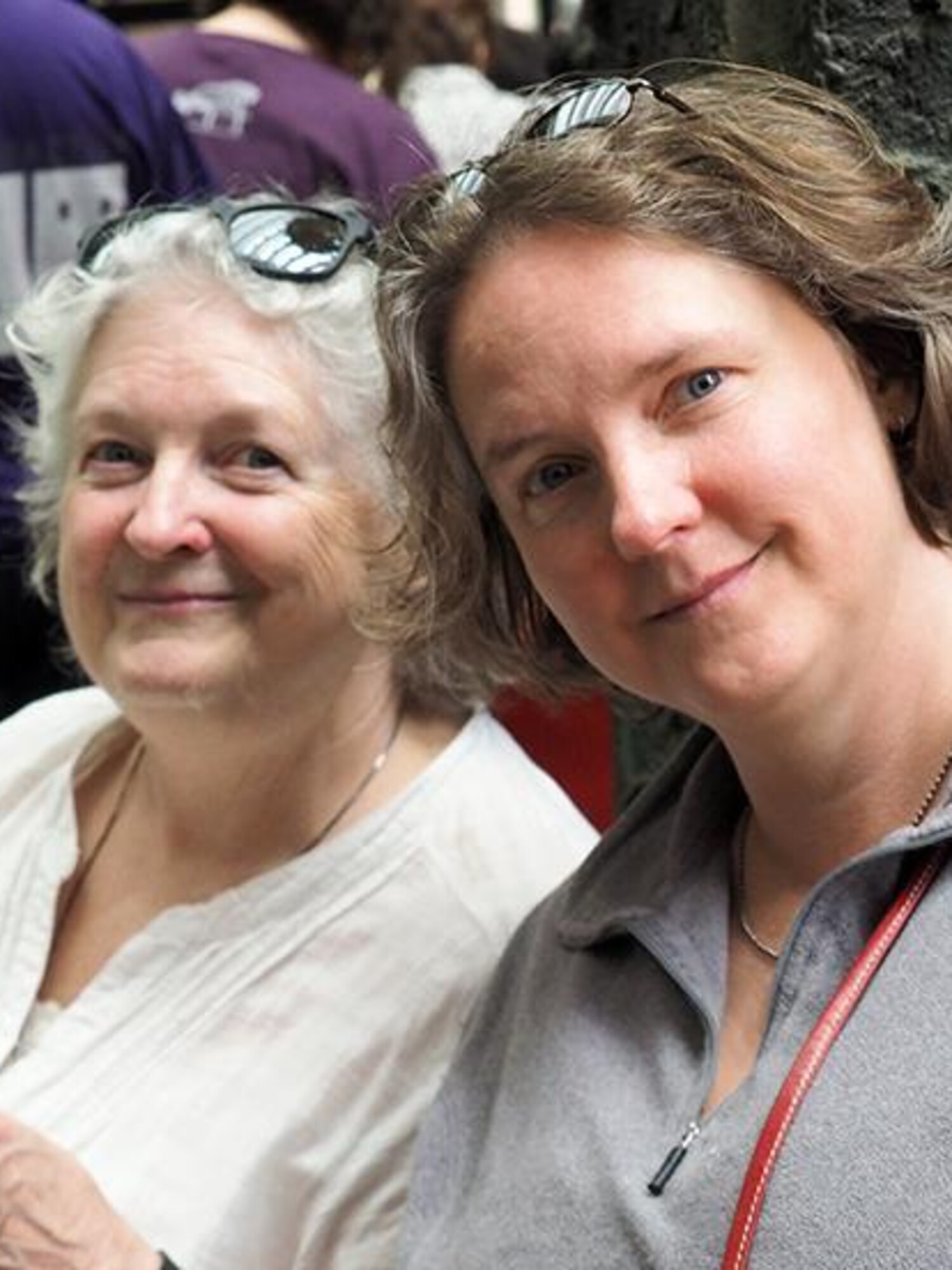 Anne and Satya
Anne and Satya
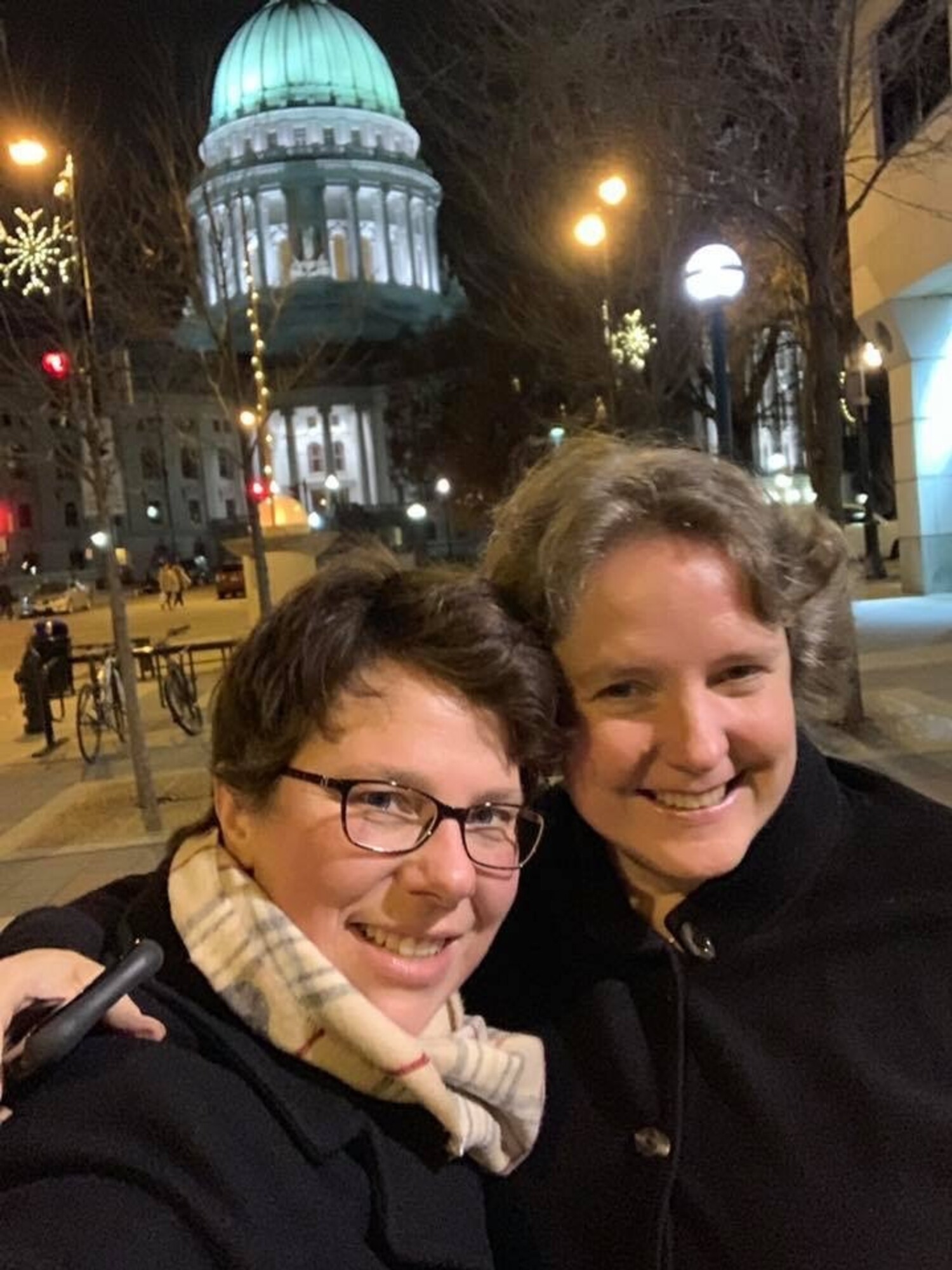 Amy and Satya
Amy and Satya
Influences & mentors
Among those who have supported her in her career, Satya considers herself lucky to call Annise Parker one of her mentors. Annise served as mayor of Houston, Texas from 2010 to 2016, and like Satya, was her city’s second female mayor and is an openly gay woman.
“Not only was she an inspiration to me, she has always been incredibly supportive. She proactively reached out to me with advice and support, which she didn’t have to do. It was meaningful that she cared enough to do that—even when she was calling to say, ‘Get your shit together,’” says Satya.
She points to Senator Tammy Baldwin and Congressman Mark Pocan as influential to her career. She and Senator Baldwin both went to Smith College, which was a point of inspiration for Satya. Both the Senator and the Congressman have been generous with their time, answering questions and offering advice.
Satya fondly remembers being on a panel of openly queer professionals during her first term on city council with late historian, activist, and politician Dick Wagner. Dick is well- known for his work in Wisconsin LGBT history, the creation of organizations to elect gays and lesbians to public office, and his public service.
“I remember thinking, ‘I’m in the presence of a legend!’” says Satya. “I admired him and his groundbreaking work. He was so kind and patient; he made room for me to share my experience.”
Looking forward
When asked what concerns she has for future LGBTQ life in Wisconsin, Satya says she worries about in-fighting that is fracturing the queer community.
“There’s been a massive backlash against progress lately—against women, the LGBTQ community and anti-racism work—and we could lose everything again,” she says. “The enemy is clear, and it’s not us.”
She hopes that young people, once they feel comfortable and safe (“Staying alive and being safe are most important,” she stresses), will think about their role in fighting back against the biggest threats to their rights and take action—even if it’s simply to vote.
“Now is the time to come together against the people who literally want to kill us,” she says.
As a person who’s “always looking for what’s next,” Satya is committed to continuing to lead and innovate in her community.
“I put down roots by buying a modest home in the Eken Park neighborhood and getting into local politics. I met my partner Amy in 2008, and I couldn't be happier,” she says.
“Everyone should have that kind of opportunity—but not everyone does, and that's why I ran for mayor. It's what inspires me to work hard every day to make Madison number one—for everyone.”
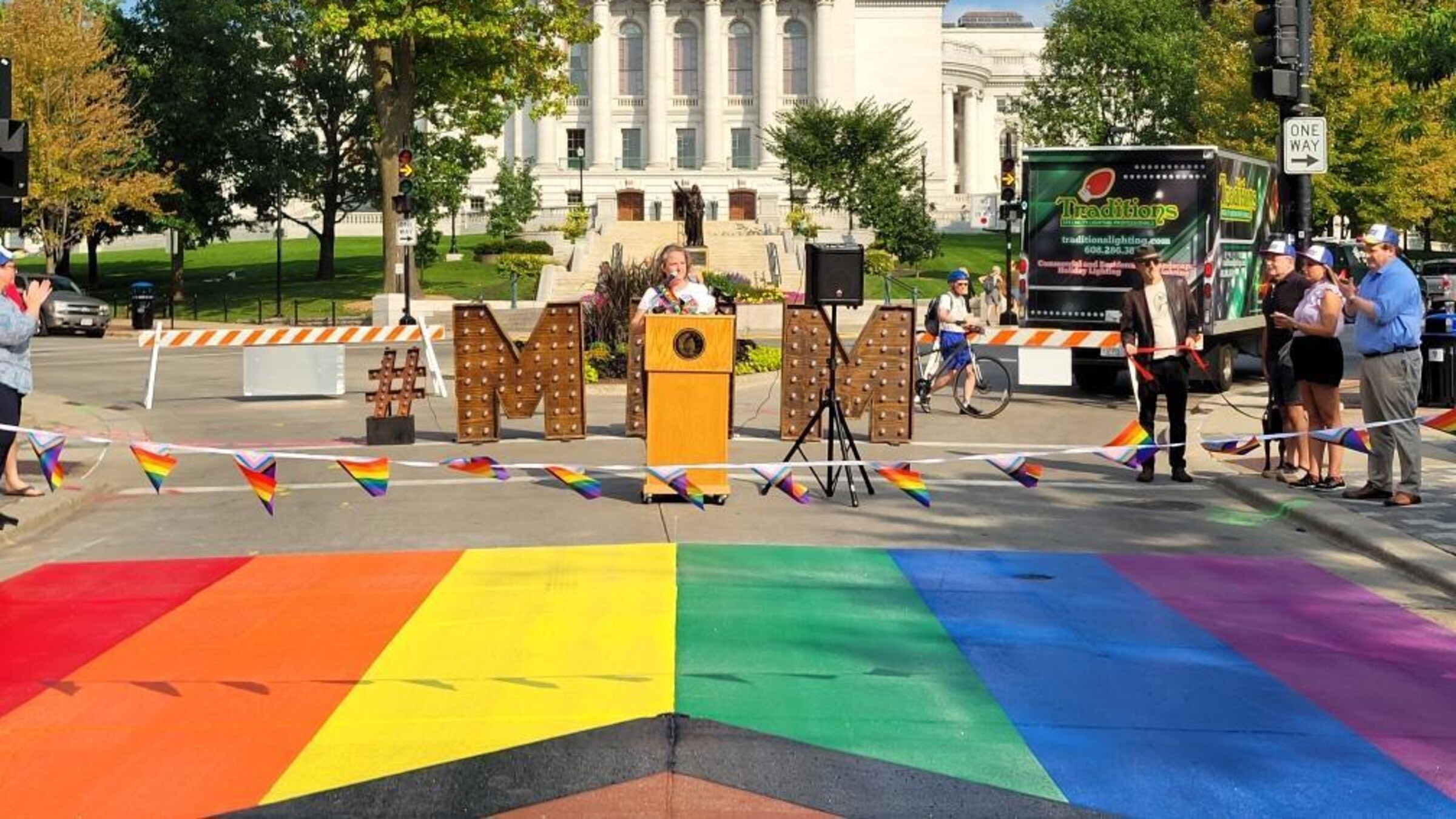 Satya, at the dedication of Madison's Pride Ribbon
Satya, at the dedication of Madison's Pride Ribbon
recent blog posts
December 17, 2025 | Michail Takach
December 16, 2025 | Michail Takach
December 01, 2025 | Dan Fons
The concept for this web site was envisioned by Don Schwamb in 2003, and over the next 15 years, he was the sole researcher, programmer and primary contributor, bearing all costs for hosting the web site personally.
